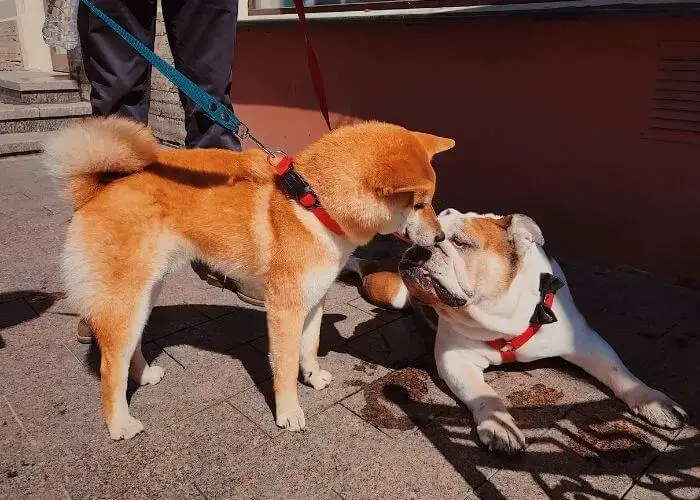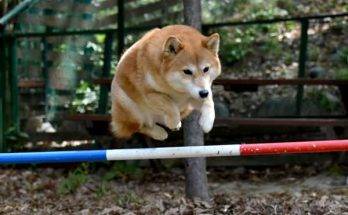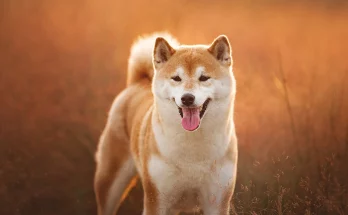Shiba Inu socialization tips are essential for anyone embarking on the journey of raising this spirited and independent Japanese breed. Known for their striking appearance and strong-willed nature, Shiba Inus require careful socialization to ensure they grow up to be well-adjusted and friendly companions. In this comprehensive guide, we will explore effective strategies and techniques to socialize your Shiba Inu, fostering positive interactions and building a strong bond between you and your furry friend.
Understanding Shiba Inu Temperament

Before diving into the realm of socialization tips, it’s crucial to grasp the unique temperament of Shiba Inus. These ancient dogs possess a distinct blend of independence, intelligence, and aloofness. While their loyal and affectionate nature is undeniable, they tend to be reserved and cautious around strangers.
- Why are Shiba Inus known for their independent nature?
Shiba Inus have an independent streak ingrained in their DNA, which can sometimes make socialization challenging. This trait stems from their history as hunters in Japan, where they were often required to work alone and make decisions without human intervention. It’s important to acknowledge and respect their independent nature while gradually introducing them to new experiences.
- How does the intelligence of Shiba Inus impact socialization?
Shiba Inus are highly intelligent dogs with a keen problem-solving ability. While this intelligence can be advantageous during training, it also means they quickly sense patterns and may become bored with repetitive exercises. Incorporating mental stimulation and variety into their socialization process will keep them engaged and interested.
- Why do Shiba Inus exhibit aloofness towards strangers?
Shiba Inus are naturally reserved and tend to be cautious around unfamiliar people. This behavior is a result of their instinctive guarding nature and their tendency to form strong bonds with their immediate family. Early socialization can help them become more comfortable with strangers, but it’s important to understand and respect their natural inclination.
The Importance of Early Socialization

Early socialization plays a pivotal role in shaping a Shiba Inu’s behavior and temperament. Introducing them to various environments, people, animals, and experiences during their critical developmental period helps them develop confidence, adaptability, and appropriate social skills. Here are some key aspects to consider when undertaking the socialization process:
- What is the critical period for socializing Shiba Inus?
The critical period for socializing Shiba Inus typically occurs between 3 and 14 weeks of age. During this time, they are highly receptive to new experiences and less likely to develop fear or aggression towards novel stimuli. Focusing on positive interactions and gradually exposing them to different situations within this timeframe is crucial for their long-term well-being.
- How can I introduce my Shiba Inu to new people?
When introducing your Shiba Inu to new people, start with calm individuals who understand and respect the breed’s disposition. Encourage visitors to offer treats and positive reinforcement while maintaining a relaxed environment. Avoid overwhelming them with too many new faces at once and allow your Shiba Inu to approach people at their own pace.
- What strategies can I use to socialize my Shiba Inu with other animals?
To ensure harmonious interactions between your Shiba Inu and other animals, gradual introductions are essential. Begin with controlled encounters and observe their body language closely. Positive reinforcement and rewards can reinforce desirable behavior. Properly supervised playdates with well-behaved dogs can also help foster positive socialization experiences.
Building Confidence and Trust

Building confidence and trust forms the bedrock of successful Shiba Inu socialization. By instilling a sense of security and teaching them that new experiences are enjoyable, you can help your Shiba Inu navigate the world with confidence.
- How can I expose my Shiba Inu to various environments?
Introducing your Shiba Inu to different environments should be done gradually. Start with low-stress locations such as quiet parks or familiar neighborhoods, gradually progressing to more challenging settings like crowded areas or dog-friendly establishments. Pairing each experience with positive reinforcement, treats, and praise will create a positive association.
- What techniques can I use to desensitize my Shiba Inu to common stimuli?
Desensitization is crucial for helping your Shiba Inu become accustomed to everyday sounds and objects. By systematically exposing them to stimuli like vacuum cleaners, doorbells, or bicycles in controlled settings, you can gradually reduce their fear or anxiety responses. Patience, rewards, and gradual progression are key to successful desensitization.
- How do I address fear or anxiety during the socialization process?
It’s normal for Shiba Inus to exhibit fear or anxietyduring the socialization process. Here are some tips to address these emotions:
- Patience and gradual progression: Take things at your Shiba Inu’s pace, allowing them to approach new experiences gradually. Rushing or pushing them into unfamiliar situations can increase their fear or anxiety.
- Positive reinforcement: Use treats, praise, and rewards to create positive associations with new experiences. This helps build confidence and reduces anxious responses.
- Provide a safe space: Create a designated safe area where your Shiba Inu can retreat when feeling overwhelmed. This could be a crate or a quiet corner of the house, ensuring they have a peaceful environment to decompress.
- Seek professional help if needed: If your Shiba Inu’s fear or anxiety becomes overwhelming or inhibits their ability to socialize, it may be beneficial to consult a professional dog trainer or behaviorist who specializes in positive reinforcement techniques.
Training and Socialization Exercises

Training exercises that incorporate socialization are an effective way to reinforce positive behaviors and enhance your Shiba Inu’s social skills. By combining training with socialization, you can create a well-rounded companion. Here are some exercises to consider:
- Obedience training: Teaching basic commands such as sit, stay, and come not only establishes boundaries but also enhances communication between you and your Shiba Inu. Consistency, positive reinforcement, and short training sessions will yield the best results.
- Leash training: Leash training is vital for both safety and successful socialization. Gradually introduce your Shiba Inu to walking on a leash, rewarding them for good behavior. Practice walking in different environments while focusing on loose-leash walking to promote positive interactions during outings.
- Structured socialization: Organized socialization activities, such as supervised playgroups or obedience classes, provide controlled environments for your Shiba Inu to interact with other dogs and people. These experiences can help build social skills and reinforce positive behavior.
Conclusion

Socializing a Shiba Inu requires patience, understanding, and a tailored approach to their unique temperament. By providing early socialization, building confidence and trust, and incorporating training exercises, you can raise a well-adjusted and sociable companion. Remember, each Shiba Inu is an individual, so adapt your strategies to suit their needs and comfort levels. With consistent effort and positive reinforcement, your Shiba Inu will thrive as a happy and confident member of your family.




